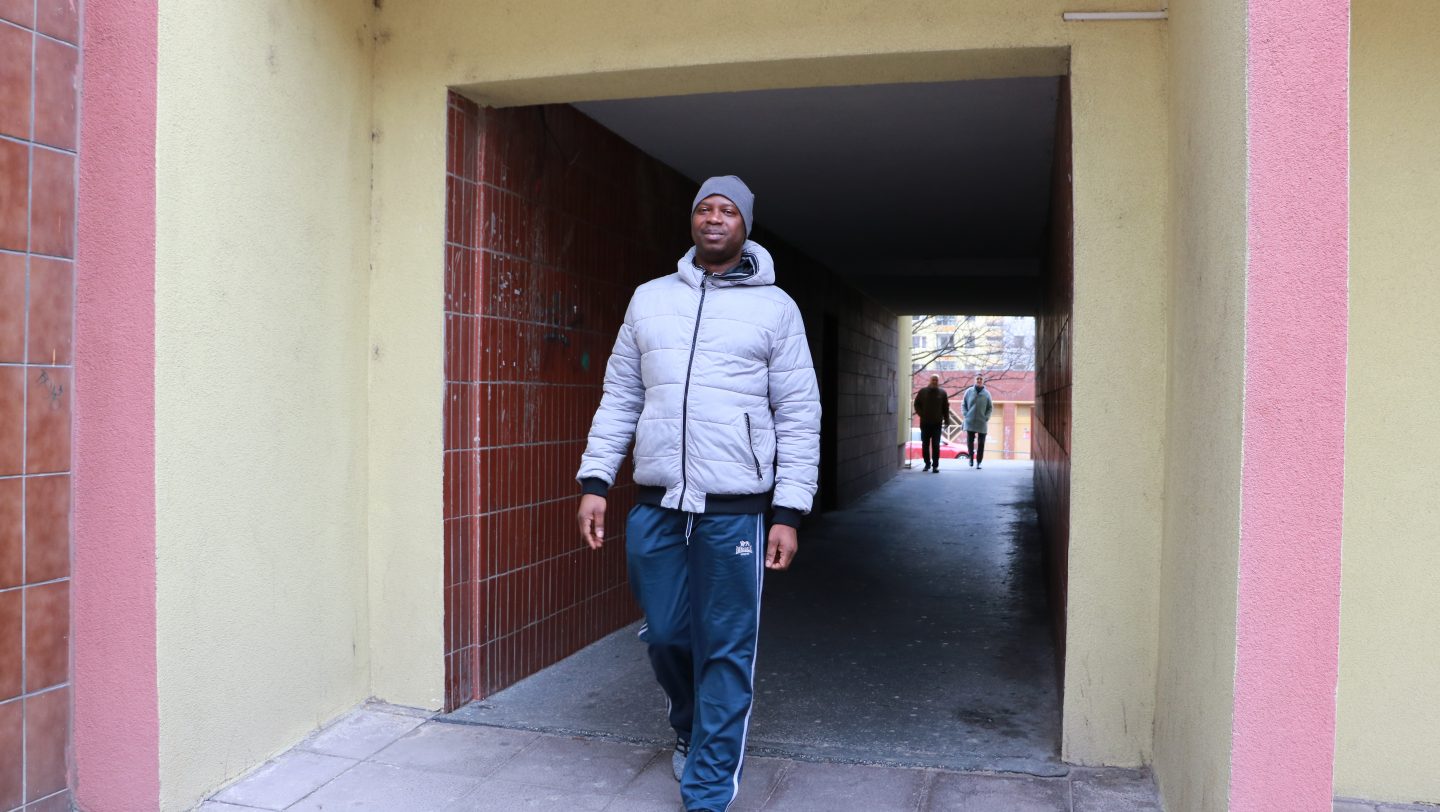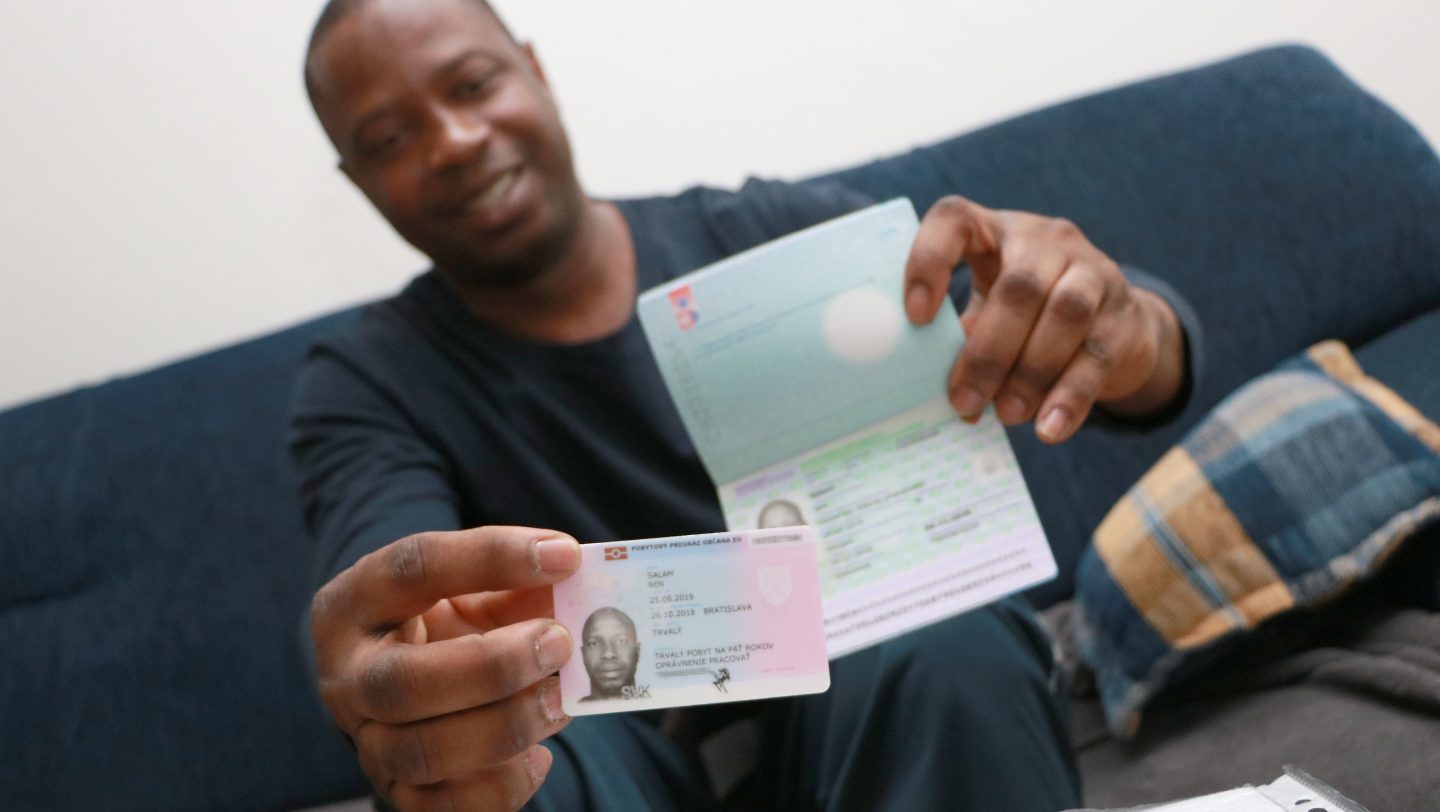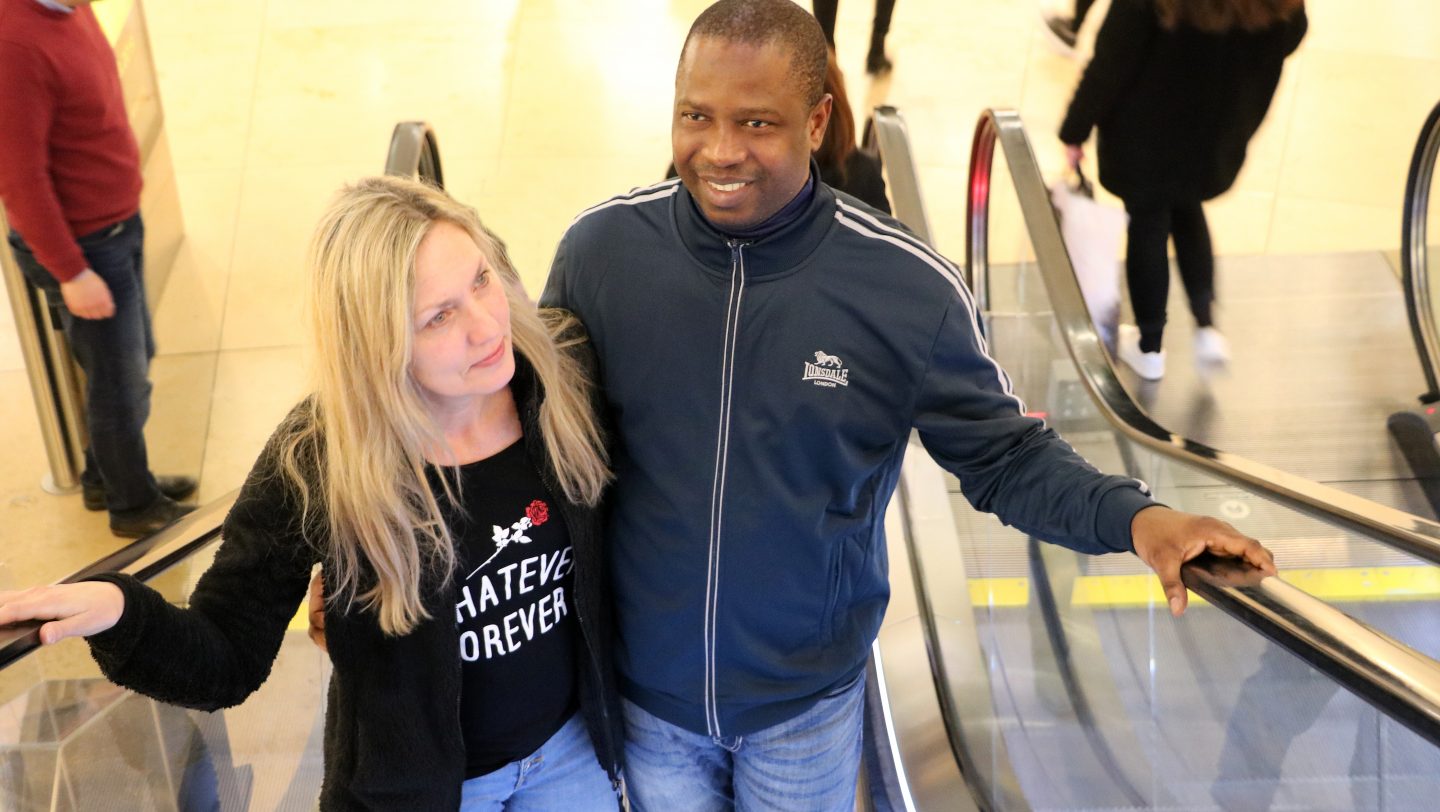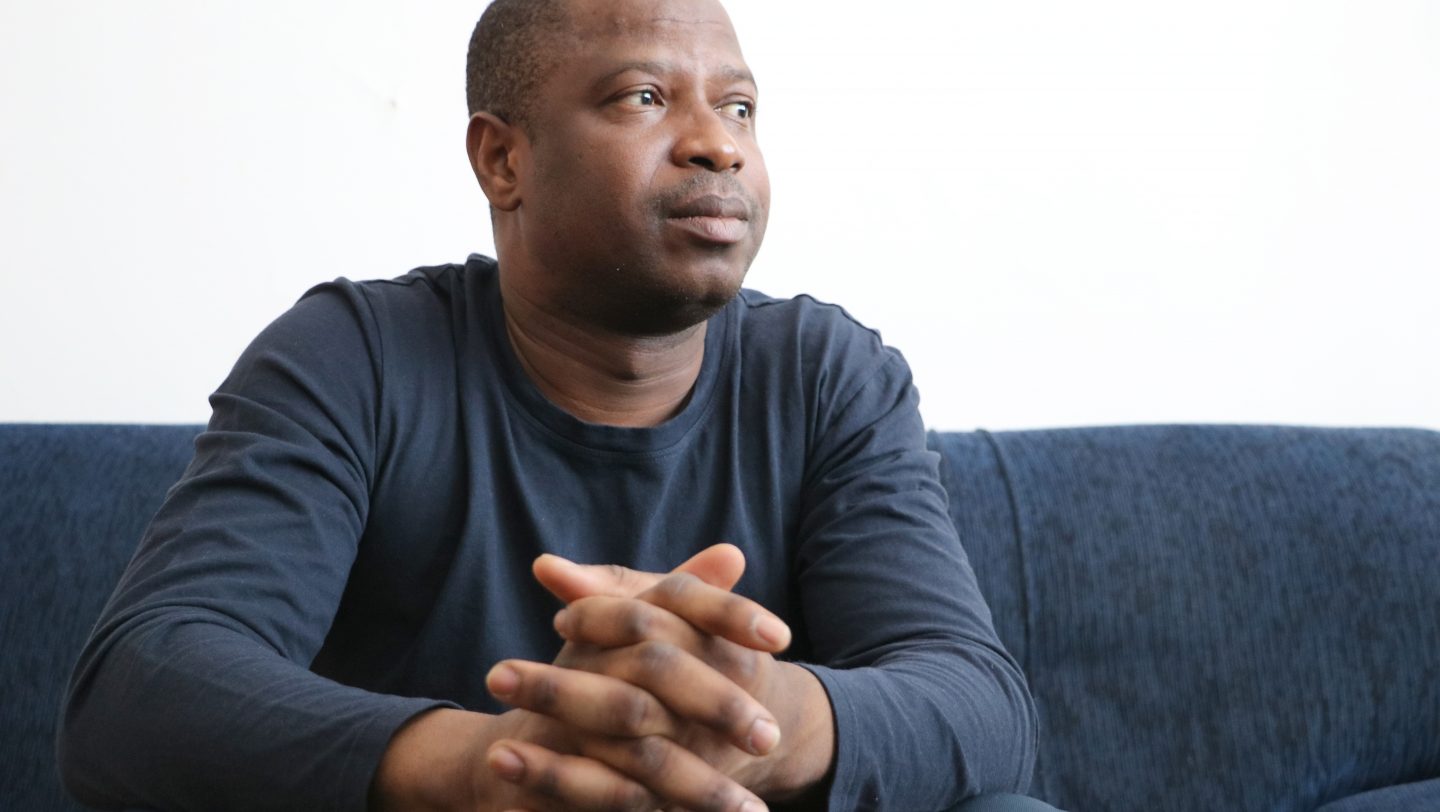Stateless African finds his way through legal maze in Slovakia
Ben Salam from Ivory Coast was stateless from birth but he only understood the full extent of his problem when he reached Europe. Slovakia finally helped him to solve it.
Ben outside his home in Bratislava © UNHCR/Zsolt Balla
Ben Salam “laughed with despair” when he received official confirmation that he was stateless. But this bleak moment proved to be a turning point after which his troubles gradually eased and he embarked on a new life, with legal status, a job and love in Slovakia.
Sitting at home in Bratislava, Ben, 40, originally from Ivory Coast, speaks of the stress of being stateless. “Living without documents was like being half-dead,” he says. “It was humiliating to be in places without papers when everyone else had them.”
His Slovak fiancée, flute teacher Michaela Nováková, 51, says: “I am surprised at how patient he has been. We are still recovering after all we have been through.”
UNHCR is campaigning to end statelessness, which affects at least 10 million people worldwide, denying them basic rights that citizens take for granted. In Ben’s case, administrative barriers were the problem.
He was born near Abidjan to an Ivorian mother but his father was originally from Somalia. So even though Ben had always lived in Ivory Coast, he was regarded as a “foreigner”.
“It was hard to survive. I couldn’t go out. I lived on bread and water.”
He did have a birth certificate and, unlike many stateless people denied access to education, he got schooling up to age 18. “Throughout my childhood, I did not really understand I had a problem,” he says.
But the issue raised its head when he applied to enter a football academy and needed a passport. “I didn’t even have an ID card,” he says. “I went several times to the police but they told me I was a ‘foreigner’.”
Instead of following his dreams of becoming a professional footballer, young Ben worked at the docks in Abidjan, loading cocoa, and had to be satisfied with playing football at an amateur level.
Being a “foreigner” became especially problematic during the civil war in 2011. “Both sides blamed ‘foreigners’,” he says. “It was hard to survive. I couldn’t go out. I lived on bread and water.”
Salvation appeared to come from a “businessman” who, for the equivalent of nearly 700 US dollars, sold him a passport and promised him a chance with a professional football team in Poland. With two other football hopefuls, Ben flew with this man to Warsaw and found himself in a house in Gdansk. But there was no football opportunity. Rather, the man took their passports, which had been either fake or stolen, and started demanding money from them.
“At this point, I realised I’d been the victim of a crime,” says Ben.
He moved on to Slovakia to try his luck with football teams there but instead of shooting to sporting stardom, he entered a legal maze, struggling to clarify his status – and all in Slovak while he spoke French.
“I crossed the border easily,” he says, “but in the border town the police asked me for doklad (documents) and I didn’t have any.” All he had were 20 Euros and three little coloured wash cloths from Africa. After two hours of questioning, he was taken to a refugee centre.
A lawyer from the Slovak Human Rights League helped Ben to navigate through a system that was foreign to him. First he applied for asylum in Slovakia but the problem was – as he admitted himself – he was not really eligible, as his life was not in danger if he returned to Ivory Coast. Predictably, he was turned down.
But although he was willing to be repatriated and indeed applied for voluntary return, he couldn’t go back either, without a passport or other travel document.
“When I got the letter,” he says, “I laughed with despair. I spent a month at home, feeling completely sick. Every centimeter of my body hurt.
“I was so fed up,” he says, “I was ready to go to any country that would accept me.”
Eventually he got tolerated stay status in Slovakia and decided to apply for permanent residence on the basis he was stateless. A requirement of this is to show you are not a national of the country where you were born. Since Ben was no longer applying for asylum, he could approach the Somali embassy in Moscow and the Ivory Coast embassy in Vienna for confirmation he belonged to neither country.
An email came through from Moscow to confirm he was not Somali. It took the Ivory Coast embassy two years (from 2015-2017) to confirm in writing he was not their national either.
“When I got the letter,” he says, “I laughed with despair. I spent a month at home, feeling completely sick. Every centimeter of my body hurt. I felt so bad I thought I was going to die.”
Luckily, by this point, Ben was in a relationship with Michaela, who got him to hospital. He was diagnosed with a lung problem, likely to have been brought on my emotional distress. “Michaela saved my life,” he says.
Permanent residence can be given at the discretion of the authorities but Ben was rejected on his first attempt. After an intervention by UNHCR, Slovakia granted him residence in August 2018.
Slovakia has had limited experience of dealing with stateless people. UNHCR Senior Regional Policy Officer Yolande Ditewig said: “Ben’s case shows that while Slovakia does not have a formal statelessness determination procedure, the system can function and offer stateless people a solution, enabling them to live and work in the country legally.”
Now Ben has a UN Convention Travel document issued by Slovakia and will be able to apply for Slovak citizenship. He can speak some Slovak and has a job as a pallet loader in a supermarket warehouse.
Michaela is happy. “For a long time I was single,” she says. “I could not find a reliable, honest, hardworking guy. Ben has all these qualities.”
They plan to marry but not before he has citizenship. “I love her and don’t want her to think I’m marrying her for documents,” he says.
Ben’s dream is to take Michaela on a trip to Africa before settling down to a peaceful married life in Bratislava.
Share on Facebook Share on Twitter






